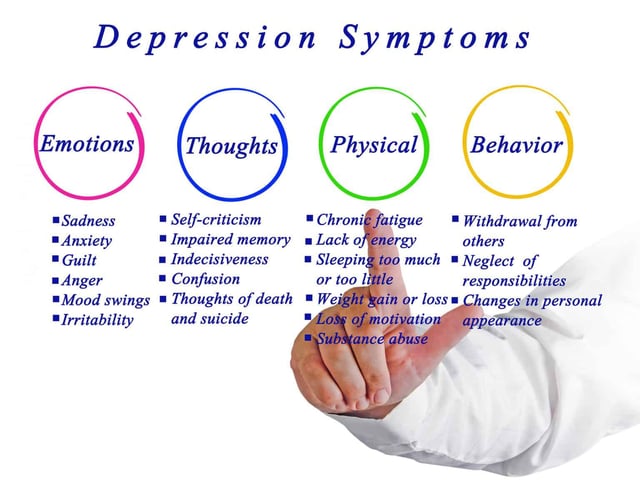Welcome to
Clear Skies
Depression – What do some real symptoms and signs look like?
Here are some examples to help clarify the symptoms of depression and help you decide if you should seek professional treatment.
The diagnostic criteria to determine clinical depression is present has some leeway in identifying symptoms using terms like “markedly diminished, nearly every day, etc. It can be difficult to quantify this information and even if it can be what do clinicians compare the symptoms against to see if, for example, something is diminished? To do this, clinicians often rely on assessments that use self-reported information from clients. Below are some examples in key areas to help you better understand what to look for.
Mood
Depression is considered a mood disorder and although people with mild depression may not feel bad all day, they can still describe a bleak outlook and sense of gloom. Their mood may lift with a positive experience but will quickly fall with even a slight disappointment. Those with severe depression may feel low throughout the day and positive experiences may not even register with them.
Thinking
Those with depression tend to see themselves in a negative light; dwelling on how bad they feel, how difficult everything is, or how hopeless the future seems. They often feel guilty and blame themselves for everything including their negative thoughts. It is common for their self-esteem and self-confidence to become very low. They may also have difficulty thinking clearly or concentrating and may appear to be indecisive.
Physical
There are several physical symptoms individuals with depression and those around them may notice:
- Changes in sleep – Difficulty falling asleep or staying awake, interrupted sleep, sleeping for longer periods
- Changes in appetite – Increase or decrease in weight.
- Energy levels may fall – Stop doing things they used to enjoy; feel unmotivated or lethargic
- Sexual interest may decline
Social Interactions
Those with depression may express concern about their personal relationships. They may become unhappy with family, friends, and partners. It is common for them to feel shy or anxious around others while at the same time feeling lonely and isolated. They may also be unwilling or unable to reach out to others even when the chance presents itself.
For more information visit: https://www.cci.health.wa.gov.au/
Get In Touch
Begin your journey to healing, growth, and a more enriched future today. Join us and embark on a transformative path toward personal fulfillment!
You don't have to go through it alone. We're here to help you along the way.
Contact Form
Please fill out the simple form below and we get back with you shortly.


